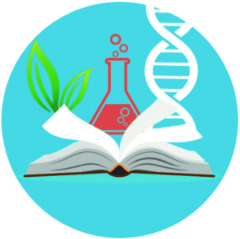
Often, as students, we emphasize the correct study strategies, time management, and drive. But brain metabolism is far more basic than that; it affects how effectively we learn. Though its metabolism is crucial for how well you take knowledge and test results, you may not consider your brain’s energy requirements when studying. This paper will look at how brain metabolism affects learning efficiency and provide practical advice to maximize it, hence improving your academic success.
How Brain Metabolism Affects Cognitive Functions
What is Brain Metabolism?
Brain metabolism is the mechanism by which your brain generates energy to power its intricate activities. Glucose and oxygen are the brain’s main energy sources. This energy drives everything from memory creation to concentration and thought. Above all, keep in mind that the brain is rather energy-hungry—though just around 2% of your body weight, it uses over 20% of your energy.
The Impact of Brain Metabolism on Learning Efficiency
Learning efficiency is everything for pupils. Particularly while preparing for tests, you want to remember facts fast and successfully. To concentrate, analyze, and store information into long-term memory, your brain need sufficient energy. Low glucose levels might impair focus and cause forgetfulness or simple distraction. Therefore, by maximizing brain metabolism, you may greatly improve your learning effectiveness and make the most of your study time.
Strategies to Optimize Brain Metabolism for Better Learning
Eating for Brain Health
If you want to optimize brain metabolism, your diet should stress foods that help cognitive function. Every day you should eat fatty fish (high in Omega-3s), healthy veggies, and almonds. These meals provide your brain the nutrition it needs to operate at its best. Remember to drink plenty of water as being dehydrated might make you tired and less alert. Eating well-balanced meals all day long helps keep your glucose levels consistent, which gives your brain constant energy for learning.
Seeking Help to Manage Stress and Enhance Learning
Writing a dissertation can be incredibly stressful. Imagine struggling to organize research, feeling overwhelmed by deadlines, and losing track of your ideas. In these moments, asking for help can make a huge difference. If you find yourself stuck, using a dissertation help service can lighten the load and provide expert guidance. Instead of stressing over every detail, you can focus on refining your work. With reduced pressure, your brain can function more effectively, improving your focus and overall learning efficiency.
Exercise Routines That Benefit Brain Function
Exercise enhances cerebral blood flow, hence increasing its energy supply and sharpening concentration. Quick workouts like stretching or a fast stroll may enhance cognitive function even if you are short on time. Exercise also lowers stress, which may hinder education. To maintain your brain working at its best during study periods, try including 20-30 minutes of moderate activity into your daily schedule.
Creating a Sleep-Friendly Environment
Brain metabolism and learning depend on quality sleep. Your sleep environment should be one that promotes rest; make your room dark, quiet, and cold. Blue light may disrupt sleep quality, so avoid screen time before bed. Create a calming nighttime ritual to let your brain know it’s time to shut down. Prioritizing sleep guarantees that your brain can digest and combine everything you have acquired during the day.
Factors That Affect Brain Metabolism
Diet and Nutrition
One of the most important elements affecting brain metabolism is your nutrition. Your diet may directly affect your mental functioning. Maintaining good brain function depends on nutrients such B-vitamins (in leafy greens), antioxidants (in berries), and Omega-3 fatty acids (in fish). Furthermore, energy dips that impair focus may be avoided by eating consistent, balanced meals and being hydrated. High sugar consumption should be monitored as fluctuations in blood sugar could affect your concentration and capacity to learn.
Exercise and Physical Activity
Exercise is not only beneficial for your body; it is also rather helpful for your mind. Physical exercise sends oxygen and nutrients required for best functioning to the brain by increasing blood flow. Regular exercise, according to studies, enhances general cognitive function, memory, and attention. A regular stroll may even slightly increase brain metabolism, hence improving the effectiveness of your learning activities. Staying active is the secret to keeping your brain—and your learning—sharp.
Sleep and Brain Recovery
Brain metabolism depends much on sleep. Your brain repairs and strengthens memories as you sleep. Lack of sleep damages your brain and makes remembering, focusing, and generating fresh thoughts more difficult. Getting adequate sleep will allow your brain to operate at full speed throughout the day. To provide your brain the time it needs to relax and continue learning at its optimum, aim for 7 to 9 hours of sleep per night.
The Future of Brain Metabolism and Learning Efficiency
Emerging Research on Brain Metabolism
Research on brain metabolism is helping researchers find fresh approaches to maximize cognitive performance. Research is looking at how various metabolic routes in the brain affect memory and learning and how we may use this information to improve results in education. The future might be fascinating with new methods to increase learning efficiency by means of metabolic optimization ranging from dietary treatments to metabolic boosters.
Technological Advancements
Technological developments in neuroimaging and brain-computer interfaces are offering greater understanding of how the brain metabolizes energy. Eventually, these technologies might be utilized to design individualised learning programs maximizing brain energy consumption, hence enhancing academic success. The possibility to improve brain metabolism for improved learning results is enhanced by continuous innovation.
Conclusion
Our ability to learn, absorb information, and retain knowledge depends much on brain metabolism. Knowing how brain energy alters our mental performance will help us maximize the biological processes of our brains. Eating correctly, being active, getting adequate sleep, and managing your anxiety can help you to hasten the process in your brain. Using these concepts in your everyday life can help you to learn quicker and better. With less stress and greater concentration, this will enable you to do better in school.





